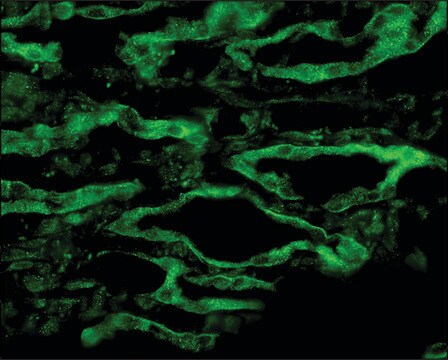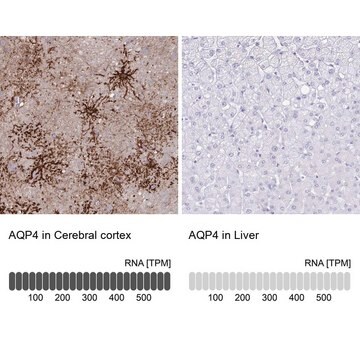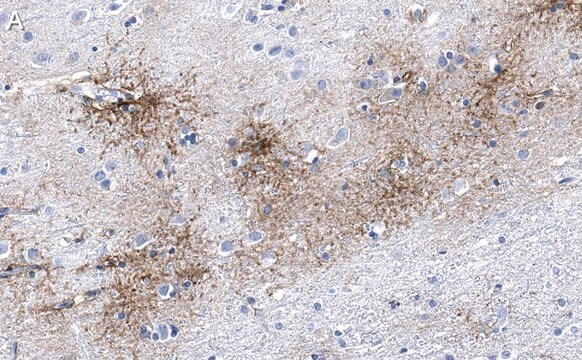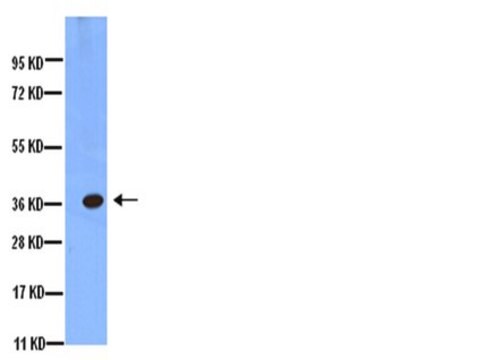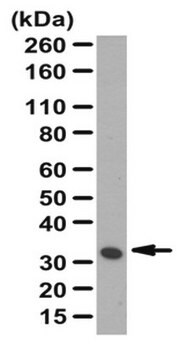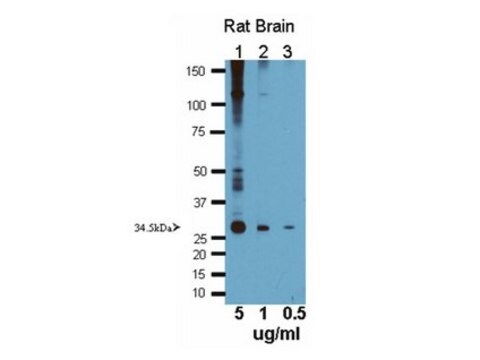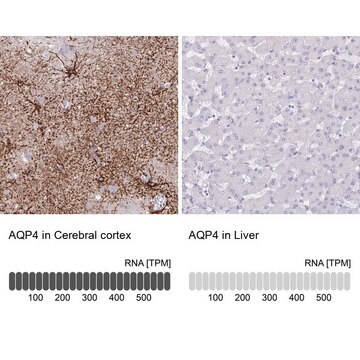A5971
Anti-Water Channel Aquaporin 4 antibody produced in rabbit
lyophilized powder, affinity isolated antibody
Synonym(s):
Anti-AQP4, Anti-Mercurial-Insensitive Water Channel, Anti-WCH4
About This Item
Recommended Products
biological source
rabbit
Quality Level
conjugate
unconjugated
antibody form
affinity isolated antibody
antibody product type
primary antibodies
clone
polyclonal
form
lyophilized powder
species reactivity
human, mouse, rat
technique(s)
flow cytometry: suitable (indirect)
immunocytochemistry: suitable
immunohistochemistry: suitable
western blot: suitable
UniProt accession no.
storage temp.
−20°C
target post-translational modification
unmodified
Gene Information
human ... AQP4(361)
mouse ... Aqp4(11829)
rat ... Aqp4(25293)
General description
Immunogen
Application
Biochem/physiol Actions
Physical form
Disclaimer
Not finding the right product?
Try our Product Selector Tool.
recommended
Storage Class Code
11 - Combustible Solids
WGK
WGK 3
Flash Point(F)
Not applicable
Flash Point(C)
Not applicable
Choose from one of the most recent versions:
Already Own This Product?
Find documentation for the products that you have recently purchased in the Document Library.
Customers Also Viewed
Our team of scientists has experience in all areas of research including Life Science, Material Science, Chemical Synthesis, Chromatography, Analytical and many others.
Contact Technical Service